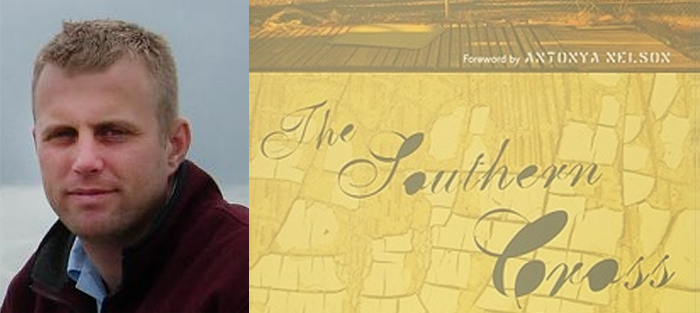In 2011, I read a copy of Skip Horack’s story collection, The Southern Cross, after my teacher, Jesmyn Ward, had mentioned it during workshop. It’s the kind of book that commands your attention, the kind that makes you sit up straight and hold the page up close to your face. As Colm Toibin said, “These stories evoke places with a sharp, sensuous and at times magical skill. Horack’s style has a beautiful edge to it; the range of his sympathy makes this a wonderful collection.”
Last spring I met Skip at Off Square Books in Oxford, Mississippi, when he was in town for the Oxford Book Conference. We talked about our former lives as lawyers. We discussed books and writers—including Denis Johnson, Tom Franklin, and Larry Brown—we both admired. What follows is the continuation of our conversation, via email.
Skip Horack is the author of the novel The Eden Hunter (Counterpoint, 2010) and the story collection The Southern Cross (Mariner, 2009), winner of the Bread Loaf Writers’ Conference 2008 Bakeless Fiction Prize. His work has also appeared in Oxford American, Epoch, The Southern Review, Narrative Magazine, and elsewhere, and his novel The Other Joseph will be published by Ecco/HarperCollins in winter 2015. He is a former Jones Lecturer at Stanford University, where he was also a Wallace Stegner Fellow. A native of Louisiana and a graduate of Florida State University, Horack is an assistant professor of creative writing at Auburn University.
Interview
Tom Bennitt: Skip, you mentioned that practicing law sharpened your work ethic, but that you wouldn’t go back to the law because you’re too far removed from that world. After reading your work more carefully, I see no traces of the former lawyer in your prose. Still, I’m curious, are there any other ways your legal background has shaped your fiction writing?
Skip Horack: It’s always interesting to me how many lawyers and former lawyers are out there writing fiction. As for why that is, I’m not really sure. I thought of myself as a writer long before I ever thought of law school or practicing law.
Instead of lawyers and office workers, many of your stories involve characters that perform physical labor: a fisherman, a dock worker, a nurse. Does this come from where you grew up in Louisiana, and personal knowledge or experience?
Yes, I’ve been fortunate to move in a lot of different circles in my life, and that didn’t change when I starting practicing law or writing full time. And, sure, I’ve had some interesting and varied jobs, and I have friends doing all sorts of things for a living. “Work” is definitely a topic that interests me as a writer, so I try to keep my eyes and ears open when it comes to the different ways in which folks pay the bills.
I know that you went straight from practicing law into a Stegner Fellowship. How long had you been writing seriously on your own before the Stegner?
I was already thinking of myself as a writer at a very young age, but it’s also true that I didn’t really start working hard at it until a few years after law school. Eventually, I was fortunate enough to receive that fellowship, and no one was more surprised than me. Obviously, we never stop writing on “our own” (nor should we), but I also had never really been a part of a writing community before then. Suddenly I was surrounded by incredibly talented people who inspired and pushed me to work even harder.






